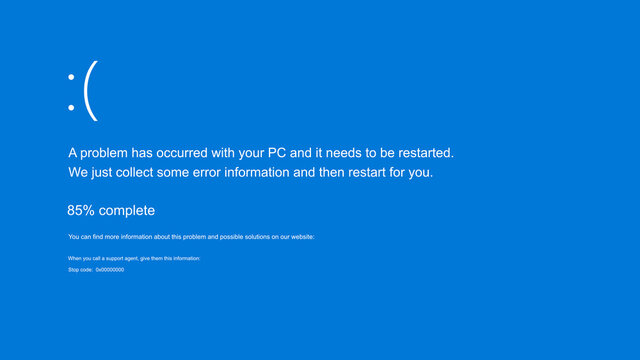
The Core Problem
Devices utilizing Windows Client and Windows Server that automatically installed a CrowdStrike security update on Friday morning are encountering a “restarting state.” This issue, commonly referred to as the “blue screen of death” (BSOD), effectively locks users out of their computers, leading to widespread disruption. This has led to many flights being grounded and cancelled.
The Root Cause
The current crisis stems from two back-to-back issues with Microsoft systems:
- Azure Cloud Service Issues: On Thursday, several Microsoft clients in the central United States experienced problems with Azure, Microsoft’s cloud service. This led to temporary grounding of flights for several airlines.
- CrowdStrike Security Update Flaw: On Friday, a flawed security update from CrowdStrike exacerbated the situation, affecting a broader range of Windows users. It remains unclear if the Azure issue is related to the CrowdStrike update.
Note that this only affected Microsoft Operating System servers and PCs. It has not affected Mac or Linux.
Challenges in Resolution
Microsoft stated early Friday that while the “underlying cause has been fixed,” residual impacts continue to affect some Microsoft 365 apps and services. The complexity of the issue and its widespread impact have contributed to the prolonged recovery time.
Who Is Affected?
The outage has had far-reaching effects across various critical sectors:
- Hospitals: Major hospitals in the U.S. have had to cancel non-urgent visits due to system disruptions. Mass General Brigham, one of the largest hospital systems in Massachusetts, is dedicating all available resources to resolving the issue. The potential impact on patient care is significant, with experts warning of possible fatalities due to the disruptions.
- Airports: Airports worldwide are experiencing delays and cancellations. South Korea’s Incheon International Airport, Germany’s Berlin-Brandenburg Airport, and Switzerland’s Zurich Airport are among those affected. In the U.S., over 26,000 flights were delayed and more than 2,000 canceled.
- 911 Call Centers: Emergency services in various locations, including Phoenix and Alaska, have faced disruptions. Some regions are reporting gradual improvements.
- Courts: Court systems in several states, including Maryland and Kansas, have had to limit operations or revert to manual processes.
- Schools: College campuses like the University of Rochester and the University of Alabama reported issues with campus computers. K-12 systems like PowerSchool also faced disruptions.
- Banks: Major financial institutions such as TD Bank, Bank of America, and JPMorgan Chase reported issues, impacting online banking services and stock exchanges.
- Public Transportation: While most major city transit systems have maintained operations, ticketing and scheduling systems have been affected.
- Paris Olympics: With the Paris Olympics set to begin next week, IT services related to uniform deliveries and accreditations have been disrupted, although ticketing and venue preparations continue normally.
Conclusion
This global technology outage highlights the critical reliance on interconnected computer systems and the potential cascading effects of security updates gone awry. As organizations work to resolve the disruptions, the incident underscores the importance of robust contingency planning and the need for rapid response mechanisms in managing widespread technological failures.
For now, affected sectors are focusing on mitigating the impacts and restoring normal operations as swiftly as possible. The full ramifications of this outage will likely unfold in the days to come, revealing insights into both the vulnerabilities and resilience of modern technological infrastructure.
0image sources
- BSOD: Topgallant Partners ©2025



